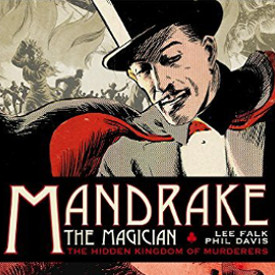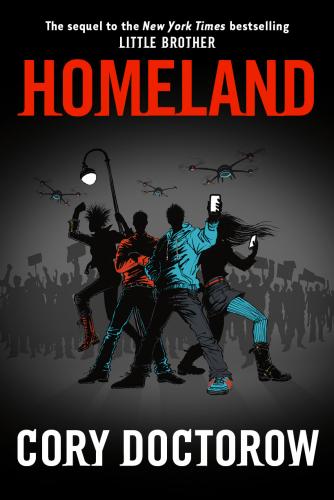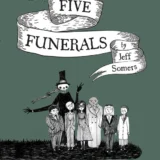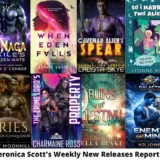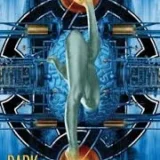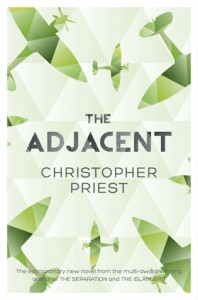 Occasionally, you finish a book and are left with the realization that you have no freaking idea what you just read. This is at best frustrating for a reviewer because you are left wondering whether the book itself was poorly written or whether the problem lies within you and your inability to understand the text. That frustration for me is quite evident in Christopher Priest‘s (Prestige) new book, The Adjacent.
Occasionally, you finish a book and are left with the realization that you have no freaking idea what you just read. This is at best frustrating for a reviewer because you are left wondering whether the book itself was poorly written or whether the problem lies within you and your inability to understand the text. That frustration for me is quite evident in Christopher Priest‘s (Prestige) new book, The Adjacent.
The story is told from several different point of views, which are all linked but this is not realized until the end. One is from a near future photographer in the IRGB (formerly the UK) whose wife was killed in a terrorist attack by a new weapon that obliterates everything within a triangular blast zone. The same kind of weapon has wiped out most of London and the authorities believe the two attacks are linked. Meanwhile, at the height of World War I, a stage magician and a famous writer head to the front to hopefully come up with a way to win the war. Elsewhere (or elsewhen) a female pilot from Poland recounts her lost love to a young British mechanic and her desperate desire to return home. Rounding out are cast are a handful of characters living out their lives on an island in the Dream Archipelago where refugees from some unknown location continue to arrive unexpectedly on their shores. Their memories, however, leave them with no doubt that they have lived nowhere else but this world.
I admit, I am new to Priest’s body of work, but I was attracted to The Adjacent by the glowing reviews that described a philosophical time travel story. I am not sure now if that really what this book is anymore. Fantasy, parallel dimensions, quantum mechanics and the afterlife all play a role. All of it is important and yet none of it describes the real tale Priest was trying to tell: a love story. Sadly, I did not realize that until later.
I admit that this is one of the few times that I have sought ought other reviews of a book after I finished reading it. Not because I wanted to use someone else’s words, but I was just not confident that I had gotten the message correct and needed some reassurance. Several reviews I read suggested this book is not for those who have never read Priest’s work before and perhaps they are correct. The near future sequences were enjoyable and the glimpses in the past were very informative about life in Britain during wartime. The sequences on the Dream Archipelago were confusing and were a slog to get through. I admit, I did not see the ending coming and I am still not completely positive what “Adjacency” is, but perhaps if I read the book again I might get a better understanding of the novel.
I still do not think I can honestly recommend The Adjacent. It was a difficult book to enjoy and you may come out of it as confused as I was, but fans of Priest’s body of work will probably enjoy this book as it does include references to subjects Priest has worked into his other novels, like magic and H.G. Wells, along with shout out to previous books he has written. For everyone else, read at your own risk and watch out for any bright lights appearing overhead.

